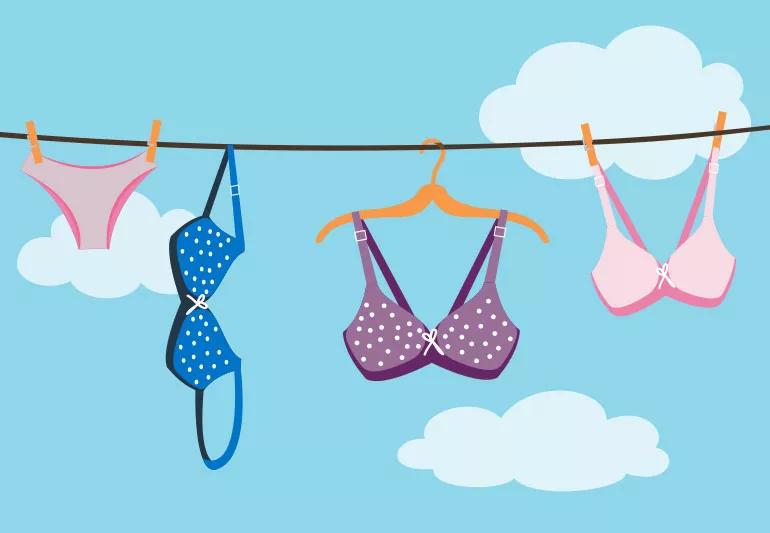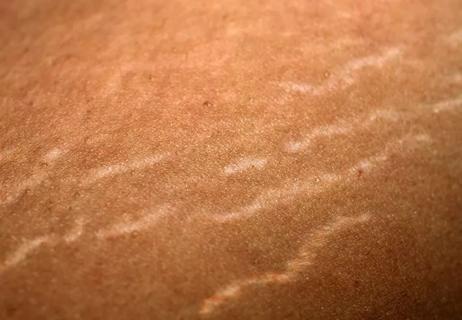A dermatologist dishes on the dirty truth

You’ve probably rationalized how often you need to wash your bras. And you know what we mean: “I’ve only worn this bra to work. I sit there all day at my desk in the air conditioning. And I didn’t even break a sweat! Surely, it’s not time to toss it in the laundry yet!”
Advertisement
Cleveland Clinic is a non-profit academic medical center. Advertising on our site helps support our mission. We do not endorse non-Cleveland Clinic products or services. Policy
How often you need to wash your bras isn’t an exact science. But dermatologist Alok Vij, MD, says that as a general rule, you should wash them after every two to three wears.
If you’re wondering “What qualifies as a ‘wear,’ anyhow?” it’s a valid question. Dr. Vij says it can mean different things, and your air-conditioned-office rationalizations aren’t all that far off.
“A few hours with a bra on with minimal sweating might not count as a full ‘wear,’” he says. “But a few hours with heavy sweating could count as a double or triple wear.”
It’s also important to rotate your bras, so the cups and straps can relax. This allows them to retain their shape and elasticity.
“You can wear the same bra two days in a row, as long as you take it off for several hours in between to allow the bra to relax,” Dr. Vij says. “But wearing a ‘lucky’ bra day in and day out will make it lose its shape more quickly.”
Keeping your bra healthy is all about balancing the care for the fabric with the removal of skin debris, oils and sweat.
“All the dead skin cells, oils and sweat trapped under your bra make for a cesspool of bacteria and yeast,” Dr. Vij explains. “Not washing frequently enough can lead to stains and persistent odors on the bra — as well as skin irritation, rashes or local skin infections from yeast or bacteria.”
Advertisement
But the more often you wash your bra, the higher the stress you place on the fabric. The cups tend to lose their shape and the straps lose their elasticity. So, here’s how to wash your bras so they last as long as possible:
“With gentle care, quality bras can last for years,” Dr. Vij says. “But washing too frequently — or not frequently enough — can destroy your bra or mar your skin.”
Advertisement

Sign up for our Health Essentials emails for expert guidance on nutrition, fitness, sleep, skin care and more.
Learn more about our editorial process.
Advertisement

For large breasts, wearing a bra may provide support that helps alleviate back pain — but if you’re comfortable without one, go for it!

Feelings of sadness or dread when your nipples are touched may be linked to dysphoric milk ejection reflex (D-MER)

Taking precautions like eating healthy, stopping smoking and getting regular screenings can help protect against breast cancer

Massaging your breast tissue can help reduce breastfeeding pain, treat lymphedema and find cancer early

Plus, a dermatologist tells you whether you can get rid of them

Over-the-counter antifungal creams usually get the job done, but it’s important to keep it from spreading in the meantime

Although it could be used as a moisturizer, this new trend is not recommended

The popular skin care ingredient can help smooth, brighten and strengthen your skin

Even small moments of time outdoors can help reduce stress, boost mood and restore a sense of calm

A correct prescription helps your eyes see clearly — but as natural changes occur, you may need stronger or different eyeglasses

Both are medical emergencies, but they are very distinct events with different causes